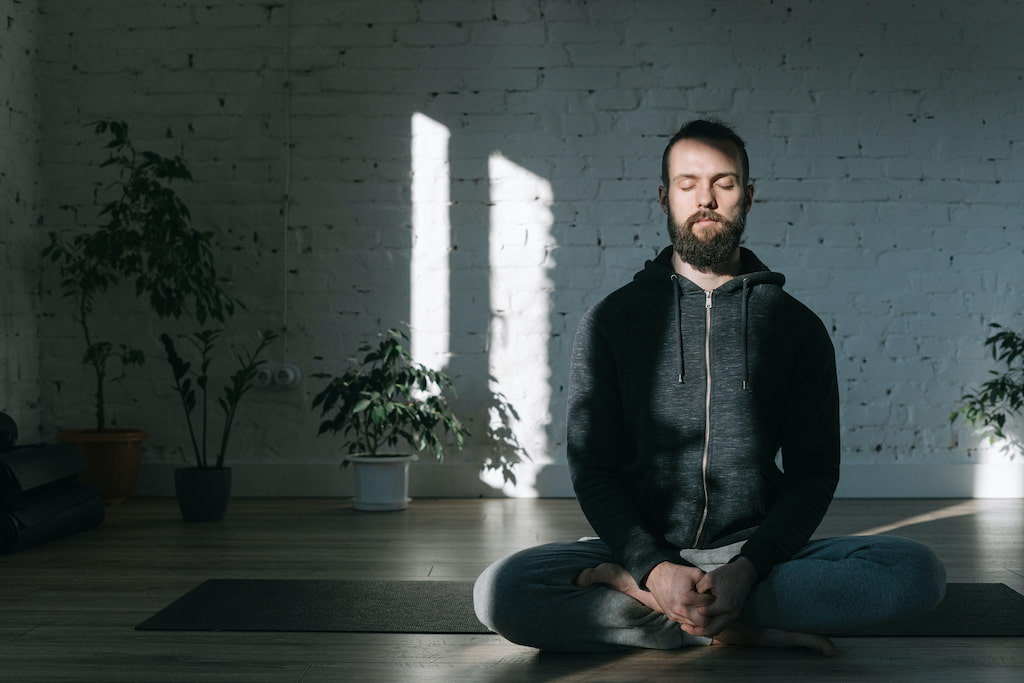Why The Grieving Process Is Completely Yours To Navigate & How Meditation Can Help

Contents
Grief is an extremely painful but personal process. No matter what anyone says, there is no right or wrong way to grieve.
Your friends and family may feel like it’s their responsibility to guide you through this process and impart their opinions about the best way to deal with it. While their approach is probably well-meaning, outsider thoughts about your grief can become overwhelming and unwanted, especially if these ‘intentions’ completely contradict or ignore your feelings or wishes.
Although some people may never relate to your personal grief, this doesn’t mean they don’t care. The most important person to remember, however, is you. Here are 6 ways you can combat societal judgments about grief and learn from meditation techniques to help cultivate compassion for yourself as you weather the emotional storm.

6 Ways to Cope with Grief
1. There’s no ‘getting over it’
Grief does not come with an off switch. An irrevocable loss or trauma is not something you can simply undo or easily come to terms with. You may encounter the view that you should ‘get over it’, which is not only hurtful but highly insensitive. No one can understand the depth of your pain, except for you. Chances are the people giving this advice are not coming from a malicious place. It’s highly likely that what your loved ones actually want to say is that they miss the ‘old you’. They too, are reconciling with your grief and coming to terms with how this process has impacted both your life and theirs.
Meditation for grief can not change the reality of the loss that has occurred for you either. However, it can assist in helping direct your attention to a calmer and more focused place, encouraging you to take care of yourself during this challenging time. Whether you practice deep breathing or set aside a time in your sacred space, meditation in any form can provide a moment of calm in an otherwise stressful time.
2. There’s No Set Time Limit To Heal
Some cultures suggest there is a period of time in which the grieving should begin and then complete as healing occurs. You may even have heard the expression, ‘time heals all wounds’. In reality, there is no amount of time that will replace a person’s place in your life or even your memories with them. In some cases, there is no recovering from grief but rather, a coming to terms with the pain.
For most of us, it is simply a matter of getting through a myriad of emotions from one day to the next. Mindfulness meditation can help us to focus on where we want our emotions to be, overcoming blocks to healing by placing awareness in fond memories, rather than sitting stuck in trauma-based emotions.

3. Your Grief Is Yours and Yours Alone
It’s okay to ask for advice, but at the end of the day, it’s up to you whether or not you accept it.
As uncomfortable as it can be, it’s important to clearly define your boundaries. Clarify that your grieving process is not a topic for discussion and therefore is not something that deserves judgment or unwanted ridicule. When you’re feeling low, the last thing you want is for your emotions to feel invalidated.
Meditation can help you delve into your own inner wisdom, to identify what your mind, body and soul need to feel supported during this time.

4. You don’t want to hear generalized clichés
It’s natural for your loved ones to want to console you through this grieving period. Statements such as ‘they’re in a better place’, ‘at least they’re at peace’ or ‘it could be worse’ can actually have the opposite effect to their intended meanings. There is a clear difference between parroting over-generalized quotes and applying mantra meditations to help you when you feel scattered or like you can’t wind down.
You may choose to dedicate a special space to undertake this practice, supported by photos of belongings of your loved one, or even a DIY cremation urn. Create your own routine, by sitting upright in a comfortable position and bringing your hands together in a prayer pose in front of your heart. Breathe deeply as you listen to or say your chosen mantras. There are many beautiful mantras for healing you can find online. It is important to choose those that speak to you. Trust your judgment.

5. Painful Feelings are Natural
Without a doubt, feelings of depression and sadness go hand-in-hand with grief.
There is an inherent societal belief that suggests that positivity is the instant cure to all sadness. But unfortunately, wanting to feel happy is different from actually experiencing happiness. The implication that you should try to ‘remain positive’ disregards the complexity of your grief. In fact, suppressing grief and presenting a happy façade can have adverse effects on your health. When painful feelings are repressed they fester and escalate, resulting in more issues down the line.
It’s easy for people who are unfamiliar with loss to tell you to focus on the bright side because in reality, they have nothing to compare your emotions to. Pain is natural and definitely not something you should feel ashamed or afraid of. Pain is a process you have to experience in order to move forward.
There’s no denying that grief will irretrievably change your life. Grief will change your routine, your personality, your natural processes as well as your relationships (and that’s not necessarily a bad thing). Once you experience loss, the way of life you once knew will reshuffle into something unrecognizable. At times you will feel that this grief is impossible and senseless.
Meditation will remind you that you are living a human experience in which we all suffer. The techniques applied through daily practice of meditation, have been helping people liberate themselves from suffering for millions of years. It can help you manage the physical symptoms of tension and headaches, improve the quality of your sleep and build your immune system back up. Most importantly, you will experience an expansion in compassion for yourself and for your loved ones, so you will feel less alone in this difficult time.


